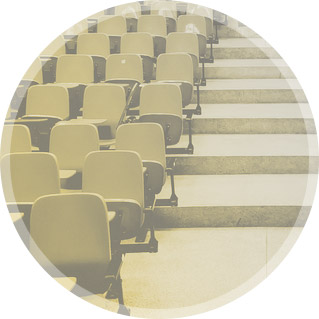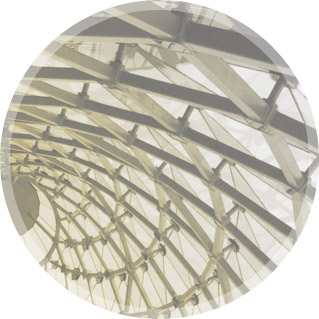Temple University
Tyler School of Art, Architecture Department
Tyler Architecture, part of the Tyler School of Art and Temple University, focuses on design in the contexts of culture, technology, and stewardship of the built and natural environment. Its programs stress critical inquiry and innovation as part of the creative process, teaching students how to intervene in the physical world through carefully considered acts of making. The Department engages the city, exploring and addressing the ethical and social dimensions of architecture and the urban environment. Through this engagement, it seeks to develop an ethos of responsibility in the students, preparing them to become effective leaders in practices and discourses surrounding the complex global and local issues of our time.
http://architecture.temple.edu
Setting
Tyler Architecture is part of an institution of profound accomplishment and relevance both nationally and globally. Temple has the most diverse student body in the nation and epitomizes what it means to be an urban public research university: creating knowledge, improving lives and serving the community. Temple University as a whole, the Tyler School of Art and the Architecture Department are in an exciting period of tremendous transformation. Advancements in academics, research, faculty recruitment and residential campus life are being noticed nationwide. We are located on Temple's main campus in Philadelphia where we tap into the energy of this major city, while offering the ambience of a college campus. Tyler Architecture offers the advantage of being a small learning community while providing the advantages afforded by a large comprehensive research institution.
School Philosophy
Temple University is located in Philadelphia, one of America's great cities, long globally acknowledged and connected. It and architectural practice within it are currently being transformed by forces of global restructuring in ways comparable with that of other mid-sized post-industrial cities around the world. Pedagogy and research are framed by this urban and professional condition. It is used as a primary laboratory for deep critical engagement, architectural investigation and operative transformation in environmentally responsible ways. Central to work in the department is the recognition of architecture as a material practice, in which acts of design and acts of making extend into one another. These include drawing, model building, fabrication and building. This locates the department's laboratories, studios, woodshop, digital and fabrication labs and a materials library, and the relationship between thinking and making, at the heart of the department's ethos and pedagogy. The department promotes investigations into architecture's material and technical properties as a basis for environmentally sustainable design and research. The department espouses a position that architecture is a social practice. It investigates the complex socio- economic, cultural and political dynamics of the contemporary, post-industrial city and explores these as opportunities for design. These include forces of migration, crime, fear, religion, climate change, etc., and phenomena, which have shaped the modern metropolis since its beginning but have taken on additional urgency under the impact of globalization, as well as more traditional forces of commercial capital and politics. Fundamental to architecture is design, a speculative practice that operates on the real, to know and transform it. The design studio, from foundation level where students learn basic design and representational skills to advanced-level comprehensive and urban studios provide a critical environment for architectural speculation. These are supported by the study of theoretical, historical, technical and professional phenomena relevant to design practice in the metropolis of tomorrow. The department operates from the position that architecture is a collaborative practice. Collaborations with other centres of excellence in the university for teaching and research are encouraged. Pedagogy and research are connected to real conditions through partnerships or collaborations with other urban agents. In this way, architectural education ensures its relevance to the transforming world of practice. Applied research and consultancy are encouraged.

Programs
The Architecture Department offers three undergraduate degrees, a pre-professional Bachelor of Science in Architecture, a Bachelor of Science in Facilities Management and a Bachelor of Science in Architectural Preservation. The undergraduate architecture curricula share a common two-year Foundation Program. Upon successful completion of this preparatory program, students may continue in the Bachelor of Science in Architectural Preservation or the Bachelor of Science in Facilities Management, or can apply for acceptance into the Bachelor of Science in Architecture degree program. Since the 4-year Bachelor of Science in Architecture degree program leads directly to the Master of Architecture degree program, admission is competitive. The Bachelor of Science in Architectural Preservation (B.S. Arch. Pres.) is a four year, 122 credit undergraduate degree program that incorporates two years of Architecture Foundation Studies. The program prepares students for a career in cultural and historic preservation focused on the built environment. Careers in the field of Architectural Preservation are those where leadership includes advocacy for places important to the underlying cultural and historical infrastructure of communities and environments. The Bachelor of Science in Facilities Management (B.S. Fac. Man.) is a four-year, 122 credit undergraduate degree program that incorporates two years of Architecture Foundation Studies. The program prepares students for a career in the profession of Facility Management. It is a profession that encompasses multiple disciplines to ensure functionality of the built environment by integrating people, place, process and technology. Students who choose this degree program can pursue facility management certification after entering into the profession. The Bachelor of Science in Architecture (B.S. Arch.) is a four-year, 123 credit undergraduate pre-professional degree program that incorporates two years of Architecture Foundation Studies. The B.S. Arch. pre-professional degree program is the Architecture Department's required path for admission to the Temple University accredited Master of Architecture (M.Arch.), the two-year, 60-credit degree program offered at Temple University. The four-year B.S. Arch. and two-year M.Arch.: when earned sequentially, comprise an accredited professional education (http://www.naab.org). Tyler Architecture Department offers two tracks for the Master of Architecture (M.Arch.) degree: a two-year track for students who have obtained a pre-professional Bachelor's degree in architecture and a three-year track for students who have a Bachelor's degree in another discipline or a non-pre-professional architecture program. The Master of Architecture (M.Arch.) degree is a first professional degree program offered at the graduate level and is accredited by the National Architecture Accrediting Board (http://www.naab.org). The Professional track of the Master of Architecture is a 60 credit degree program for students who earn Temple University's Bachelor of Science in Architecture (B.S. Arch.) degree and for students from other four-year pre-professional degree programs with equivalent course content to Temple's B.S. Arch. degree. The Professional track is designed to be completed in two years, with a maximum of four years allowed for completion of the coursework. The Intensive Design track is designed as an additional year of study for students with a degree in subjects outside of architecture or without a pre-professional degree in architecture. This program provides a rigorous introduction to architectural design that consists of up to 30 credits of pre-professional studies including design studios, building technology courses, and history and theory seminars. The amount of credits students will need to take within the Intensive Design track will vary depending upon the amount of pre-professional architectural course content that has been previously satisfied by the candidate.

of Focus
1. Art & Design
2. Building Technologies
3. Digital Design & Visualization
4. Historic Preservation
5. History | Theory | Criticism
6. Materials and Construction
7. Urbanism

Opportunities

Facilities

Policies
Transfer Policies
Almost half of incoming Temple students transfer from other colleges and universities. If you’ve taken 15 or more college-level credits after high school graduation, you could be considered for transfer admission.
Learn more here: (https://admissions.temple.edu/apply/transfer-students)


